The images of young children from Syria holding their hands above their head mistaking a camera for a gun brought home the awful misery of the war to millions around the world. To watch the loss of innocence of a group of five-year-olds burning effigies of a poor, Christian woman bruises the soul, even by our insensitive standards. Or the video of child’s banana cart being looted with great zeal by the faithful.
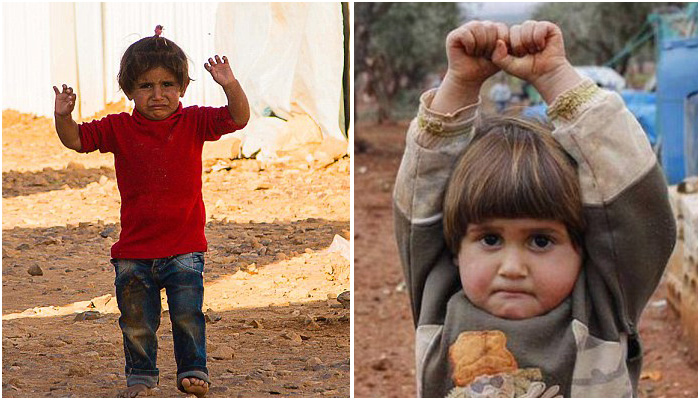
Last week’s surrender of the state has by now been carefully analysed, and the historic precedent for capitulation reviewed in detail. The two possible reasons for the surrender articulated are a lack of willingness or an absence of capacity. There is a bit of both. The language of the government, most mainstream political parties and the Tehreek-e-Labbaik Pakistan (TLP) is the same. They differ only in semantics, intensity, and quibbles about means to be employed. According to the TLP, it is demanding that the state fulfill its promise of making an Islamic state where the wrong kind of citizen is executed.
We can nitpick about whose version of religion, and how much of it, however the battle is significantly lost by that point. The prime minister's speech was a fleeting example of the direction being taken to deal with the immediate crisis by using the language of the state’s writ, the constitutional obligation to implement court orders etc. However, going back on it within hours was worse than the speech never to have been made. At least, it might have preserved the idea in some gullible minds that the silence or appeasement was part of a very cunning plan and not something as mundane and intuitive as fear and incapacity.
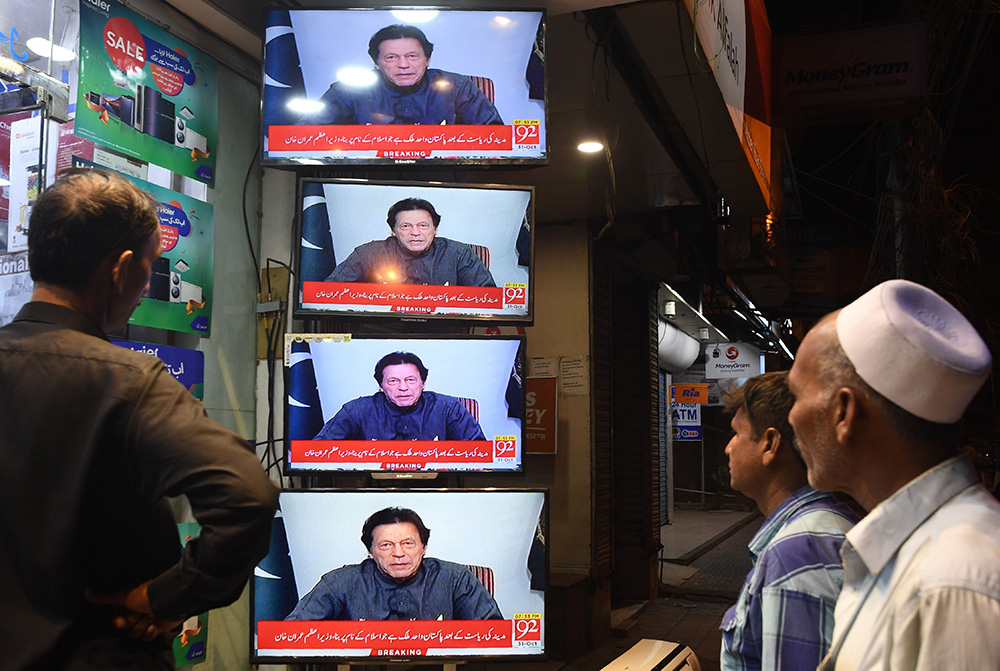
My boarding school in the center of Lahore had a school within it. It was a building, hidden in a corner adjacent to a car park and many of “us”, the students of “the” school never paid attention to it till we were much older and when that car park became unavoidable. I have thought about the “other school” only a few times over the years. The “other” school was for the children of administrative and the slightly vaguely, perhaps, disingenuously termed “support” staff including tailors, barbers, dhobis, cafeteria attendants, paramedical staff and hundreds of gardeners, security guards, stable managers etc. required to sustain the ecosystem of the two hundred acres of the campus.
The “other” school must be a reasonable school in a relative scheme of things, probably better than most schools across the country. However, most schools in the country don’t have to witness entitled brats in oversized breeches riding past them pretending, if they were being polite, that the students from the “other” school did not exist. The school had dozens of (almost) world class sports grounds, tennis and squash courts, stables and swimming pools, however, to be used only by the “students.”
Was it worst for them to live and study with all these playing fields around that are prohibited for you to use than to have no grounds at all and the unsupervised freedom of the street? I don’t know if it was because I don’t recall being in a position where I “had” to speak to the “other” students. I don’t know what they felt when they in their bluish uniforms peered from afar at the prime ministers as chief guests at the Founders Day (annual day) disembarking from the majestic old school buggy to come and distribute prizes to the “students.” Did they feel he was their Prime Minister as well?
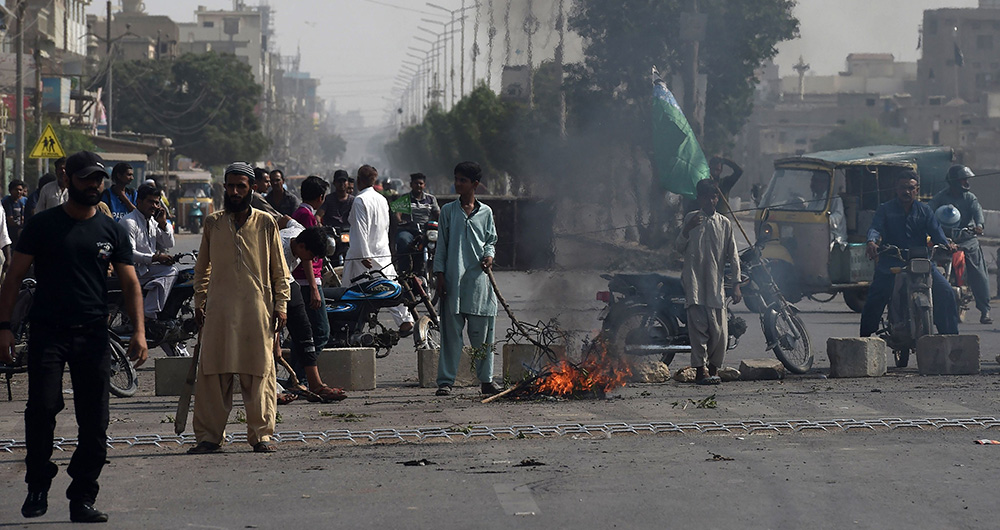
The mayhem of last week in some parts of Lahore reminded one of the “other school.” There are villages and settlements nestled within the DHA and Gulberg areas. Legally speaking they are not part of the DHA or Gulberg, at least up to the point these areas will be “acquired” and “plotted.” The relationship of these villages is not formally identical to that of the school within a school, however one of their primary functions is i.e. they exist to provide labor both domestic and commercial to people in oversized cars who outside of this transactional relationship treat them as being invisible. There are gates and security guards deployed at the entrances and exits to these villages not to completely prohibit them for entering and exiting for the purposes of serving the residents of DHA but to make sure they don’t become comfortable enough in the public spaces of these areas to loiter around and mess the aesthetic beauty.
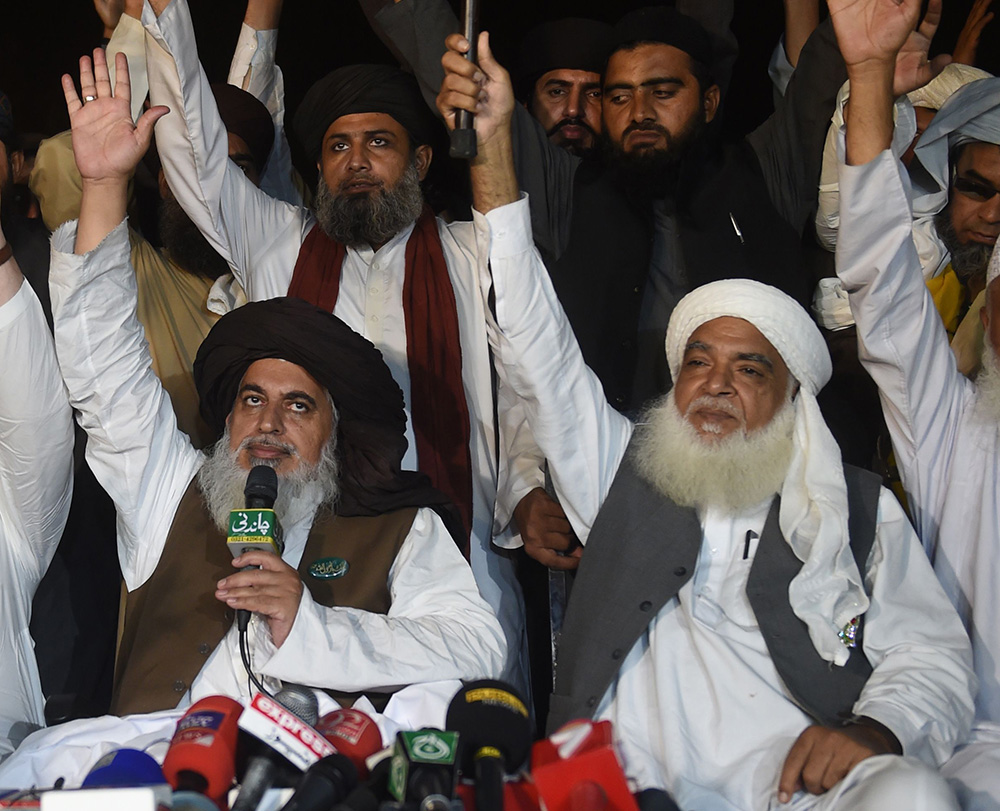
Khadim Hussain Rizvi provides an opportunity to take over these streets and public spaces even if for a day or two. To reverse access and power and police the entry and exit to these areas like they are subjected to daily, to not only touch but destroy cars they are shooed away from.
This is not an apologia for vandalism and wanton criminality. It is neither an attempt to explain religious fervor by using poverty nor to absolve the discriminatory laws and the use of religious groups for political and strategic objectives. It is simply to say that taking over public spaces and dominating national conversation is empowering, particularly for the ghettoized and invisible, the urban poor. Many of them respond to Rizvi’s call because nobody else can call.
Grass root local government institutions are non-representative and simply replicate the elite capture and socio-economic and religious hierarchies of the national level at a local scale. Student unions and trade unions have been dismantled with unmitigated use of force by the state. All expression of grievances not expressed in terms of religious outrage is prohibited and treasonous. The only conduit for resisting economic exclusion and disempowerment is religious-fascism. The state not only clamps down at any attempt to forge solidarity between victim groups and movements but reinforces and legitimizes the use of the language of blasphemy.
Intuitively, Asia seems to be an unlikely victim of this outrage as she came from abject poverty and has more in common with the protestors on Walton road Lahore than they have in common with Rizvi or Siraj-ul-Haq. However, the only language of solidarity permitted by the state is religious solidarity (an attempt destined to fail since it will degenerate into sectarian and sub-sectarian solidarity very quickly).
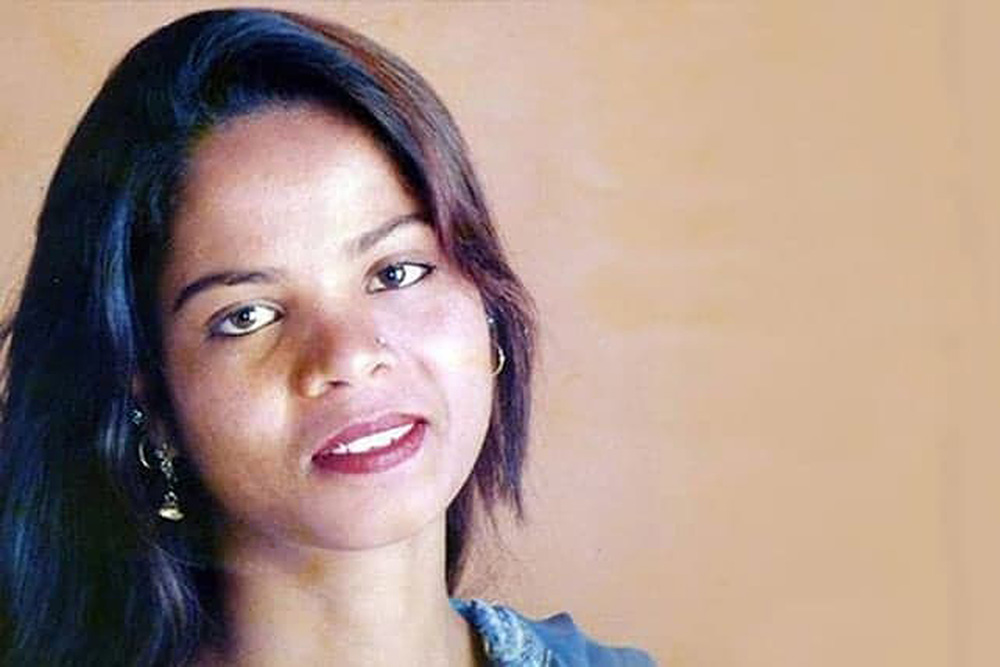
Freud called it the “narcissism of the small differences” people develop feelings of hostility towards who are just like them but not quite. The child’s banana cart will be callously looted because the extractive hierarchical violence is the dominant culture, only game to aspire to.
Asia Bibi is the ideal victim of an outrage industry, she is a rural poor non-Muslim woman in an anti-poor state, a misogynist society and religious prejudice being the common thread between state and society. In the short run, the state needs to enforce its writ and end the privatization of violence and prosecute those responsible (starting from the top for a change) however for this to be sustainable, the state must abandon the language of religious exclusion and the laws the perpetuate them. There must be avenues of dissent and political participation based on solidarity in being marginalized. The public space must be inclusive and democratic.
This will not happen in the next year or two, however till then we should at least keep the self-awareness of realizing the events such as last week’s do not merely happen because there is some mystified “writ” of the state that is absent; it is a product of decades of authoritarian rule using religion as the lowest common denominator, crushing all non-religious movements for peoples’ rights, deploying religious groups as instrument of political engineering and an elite which refuses to see the “other schools and cities.”
Ijaz is a lawyer and the country representative for the Human Rights Watch.
Disclaimer: The opinions expressed in this article are those of the author and do not necessarily reflect the official policy or position of Geo News or the Jang Group.


